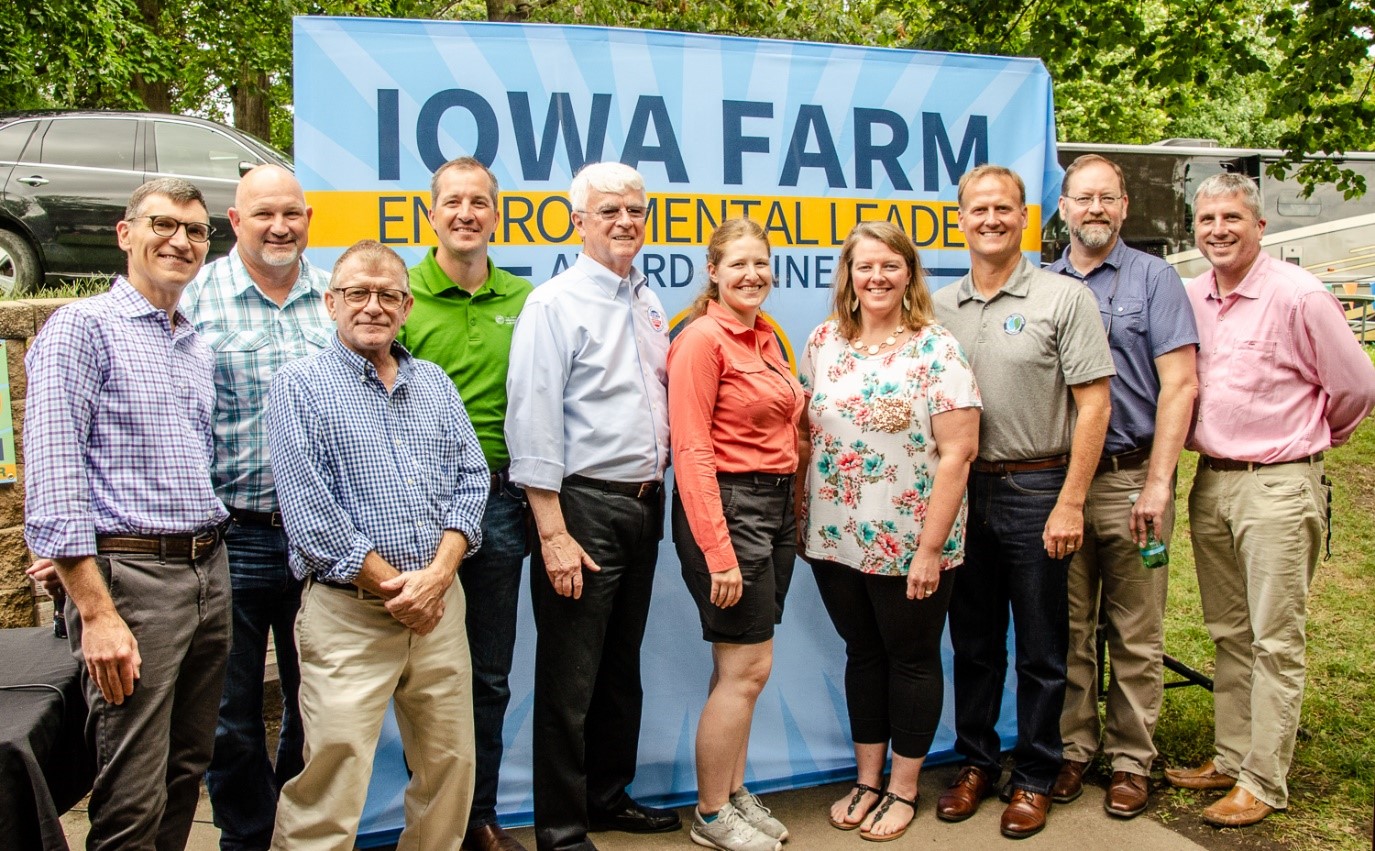College of Liberal Arts & Sciences
EPA announces $3.15 million in water quality funding in Iowa

(Des Moines, Iowa, Aug. 14, 2019) – Today, the U.S. Environmental Protection Agency (EPA) announced three EPA Farmer to Farmer Cooperative Agreements totaling more than $3.15 million to fund Iowa-based projects that improve water quality, habitat, and environmental education.
The three Iowa-based recipients for the 2019 Farmer to Farmer Cooperative Agreements are:
- Practical Farmers of Iowa ($935,788) for Roots for Water Quality: A Farmer-to-Farmer Model for a Sustainable Mississippi Basin.
- University of Iowa ($1,064,926) for Connecting Rural and Peri-urban Farmers to Demonstrate and Disseminate Innovative Nutrient and Sediment Reduction Practices.
- Iowa Department of Agriculture and Land Stewardship ($1,150,000) for Effective, Targeted Wetland Installations to Maximize Nutrient Removal, Wetland Habitat Function, and Ultimately Expand Delivery.
“These Farmer to Farmer grants will promote innovative, market-based solutions for monitoring and improving water quality throughout the Gulf of Mexico watershed,” said EPA Administrator Andrew Wheeler. “These grants are an important part of our efforts to support America’s farmers in a manner that strengthens both American agriculture and the protection of our nation’s vital water resources.”
“Farmer to Farmer Cooperative Agreements directly support science and technology-based water quality initiatives needed to protect our watersheds while also maintaining a vital agricultural economy,” said EPA Region 7 Administrator Jim Gulliford. “Here in Region 7, a combined $3.15 million in funding will support Iowa in the restoration and installation of wetlands as well as the use of cover crops to help provide measurable water quality improvement to waterways across Iowa and further downstream in the Gulf of Mexico.”
“Practical Farmers of Iowa is ready to increase the use of cover crops in Iowa to tackle our water quality issues,” said Practical Farmers of Iowa Strategic Initiatives Director Sarah Carlson. “Through farmer-to-farmer learning, PFI has proven that cover crops are an essential tool of the agronomic toolbox to manage weeds and reduce soil erosion while improving water quality in a corn and soybean rotation. This EPA funding will allow PFI to create new tools, like a ‘ride-sharing’ app for farmers. Instead of looking for a ride, farmers will be able to use the app to find qualified cover crop applicators during the busy harvest season.”
“The College of Engineering, Iowa Flood Center, and IIHR-Hydroscience & Engineering at the University of Iowa are excited to partner with rural farmers and urban consumers in Johnson and Iowa counties to demonstrate innovative nutrient and sediment reduction practices in Iowa,” said University of Iowa Vice President for Research Marty Scholtz. “This grant recognizes the university’s national leadership in water research. The $1.07 million from EPA will leverage watershed restoration funds from the $97 million Iowa Watershed Approach project to create measurable water quality improvements in stream segments within the Lower Iowa River watershed.”
“Working with the EPA and local communities, we are taking on the challenge of improving Iowa’s water quality by implementing conservation practices in priority watersheds,” said Iowa Secretary of Agriculture Mike Naig. “Whether you live in the city or the country, we all have a role to play. These types of public-private partnerships and rural-urban projects are perfect examples of what we can accomplish when we all work together to achieve our common goal — preserving Iowa’s natural resources for the next generation.”
A ceremony honoring the Iowa recipients took place today at the Iowa State Fair and was led by Jim Gulliford, regional administrator for EPA Region 7. EPA anticipates awarding seven Gulf of Mexico Division cooperative agreements totaling more than $7.5 million to fund projects that improve water quality, habitat, and environmental education in the Gulf of Mexico watershed.
Background:
Since 2018, approximately $9.5 million has been awarded to support novel or innovative agricultural techniques, methods or approaches through EPA’s Farmer to Farmer Cooperative Agreements. These projects support farmer led and/or farmer focused organizations with experience implementing programs and demonstration projects through collaboration with farmers. The projects will center around innovative monitoring systems that will measure and report field scale water and nutrient dynamics to farmers in support of informed crop management decisions. The program supports science and technology-based water quality initiatives needed to protect watersheds while also maintaining a vital agricultural economy.
The Clean Water Act provides authority and resources that are essential to protecting water quality in the Gulf of Mexico and larger Mississippi River Basin. EPA’s regional offices and the Gulf of Mexico Division work with states to continue to maximize the efficiency and utility of water quality monitoring efforts for local managers by coordinating and standardizing state and federal water quality data collection activities in the Gulf region. Enhanced monitoring and research are needed in the Gulf Coast region to make data more readily available.
EPA Region 7 Administrator Jim Gulliford (center) and Iowa Secretary of Agriculture Mike Naig (fourth from left) pose with 2019 Farmer to Farmer Cooperative Agreement recipients and EPA staff. Pictured, left to right: Danny Wiegand (EPA), Doug Jones (EPA), Jerry Binninger (EPA), Mike Naig (Iowa Department of Agriculture and Land Stewardship), Jim Gulliford (EPA), Alisha Bower (Practical Farmers of Iowa), Sarah Carlson (Practical Farmers of Iowa), Dr. Craig Just (University of Iowa), Troy Pierce (EPA), Tripp Boone (EPA).